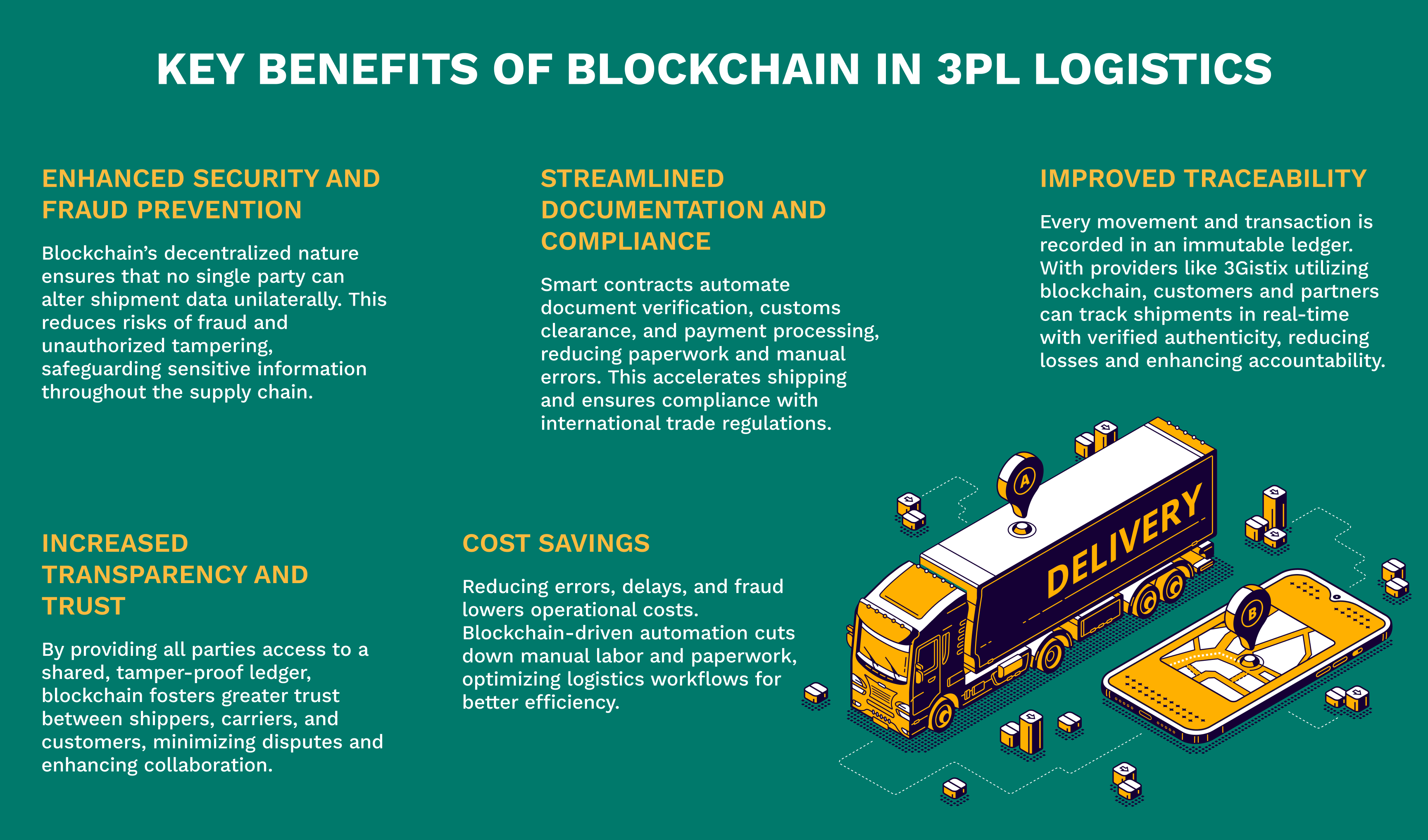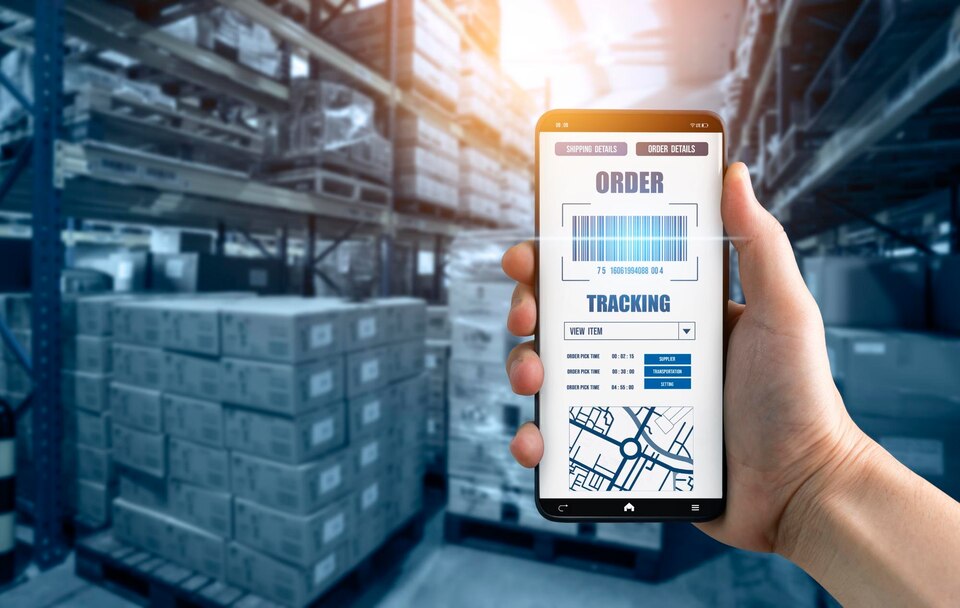The logistics industry is undergoing a technological revolution, and blockchain is emerging as a powerful tool to transform third-party logistics (3PL). In 2025, companies like 3Gistix are leveraging blockchain technology to enhance security, transparency, and traceability throughout the supply chain, addressing long-standing challenges in logistics management.
Why Blockchain Matters in 3PL Logistics
Traditional logistics systems often suffer from inefficiencies, fraud risks, and lack of transparency. Blockchain, a decentralized and immutable digital ledger, can securely record every transaction and movement of goods in real-time. This ensures data integrity and creates a single source of truth accessible to all authorized stakeholders.
Analytics and Industry Statistics
According to Gartner’s 2024 supply chain report, 65% of logistics companies plan to invest in blockchain technology by 2025 to improve transparency and security.
A study by IBM in 2024 showed that blockchain implementation in logistics can reduce shipment reconciliation times by up to 50%.
Research from PwC indicates that blockchain can decrease logistics-related fraud and errors by 40-50%.
3Gistix has integrated blockchain into its supply chain solutions, reporting a 30% improvement in traceability accuracy and a 25% reduction in cargo disputes in recent client cases.


Key Benefits of Blockchain in 3PL Logistics

Enhanced Security and Fraud Prevention
Blockchain’s decentralized nature ensures that no single party can alter shipment data unilaterally. This reduces risks of fraud and unauthorized tampering, safeguarding sensitive information throughout the supply chain.

Improved Traceability
Every movement and transaction is recorded in an immutable ledger. With providers like 3Gistix utilizing blockchain, customers and partners can track shipments in real-time with verified authenticity, reducing losses and enhancing accountability.

Streamlined Documentation and Compliance
Smart contracts automate document verification, customs clearance, and payment processing, reducing paperwork and manual errors. This accelerates shipping and ensures compliance with international trade regulations.

Increased Transparency and Trust
By providing all parties access to a shared, tamper-proof ledger, blockchain fosters greater trust between shippers, carriers, and customers, minimizing disputes and enhancing collaboration.

Cost Savings
Reducing errors, delays, and fraud lowers operational costs. Blockchain-driven automation cuts down manual labor and paperwork, optimizing logistics workflows for better efficiency.
Conclusion
Blockchain is revolutionizing third-party logistics by delivering unprecedented security, transparency, and traceability. As demonstrated by leaders like 3Gistix, integrating blockchain into 3PL operations drives measurable improvements in shipment accuracy, dispute resolution, and operational efficiency.
For logistics providers and retailers aiming to future-proof their supply chains, embracing blockchain technology is no longer optional — it’s essential. In 2025 and beyond, blockchain will continue to be a cornerstone of innovative, secure, and efficient logistics management.



